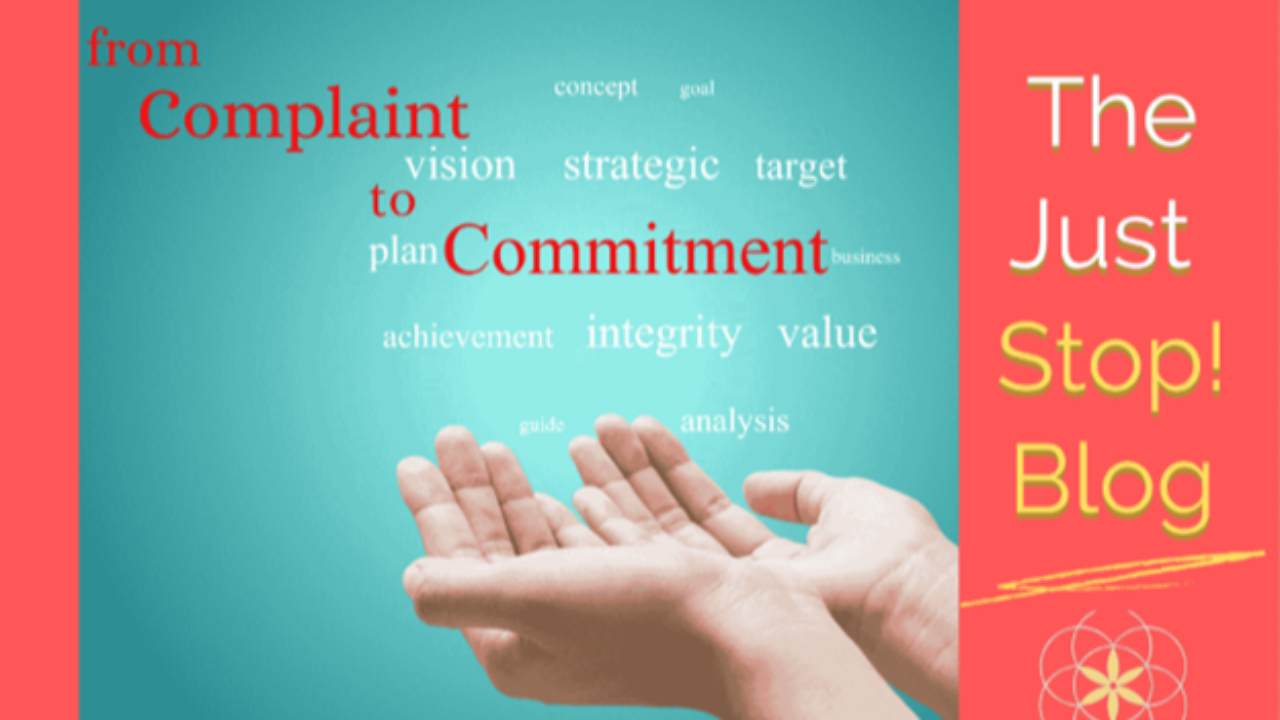
“When you complain, you make yourself into a victim. When you speak out, you are in your power.” ~ Eckhart Tolle
It’s a pattern we all fall into sometimes: complaining and blaming. It’s human. And in those moments, it’s easy to forget that we are giving our power away. But what if your complaints hold wisdom? Instead of seeing them as weaknesses, what if you see them as clues? Next time you notice yourself complaining, pause and ask: What’s underneath this? Inside every complaint is a core value. Often, there’s something you really care about, hiding just beneath the surface. For example, a concern about being “left out” might point to a longing for connection. Or a complaint about being overlooked might reveal a value for visibility or fairness.
“Notice what’s inside your complaint—it often points directly to your values and what you really care about.”
When you align with those values intentionally, instead of unconsciously reacting, you stop the blame game and shame spiral that often come with complaints. And you start reclaiming your agency. Let’s break it down:
- What happened? (Just the observable facts.)
- What’s my story about it? (What meaning am I assigning to the event?)
- Who am I blaming? (The world? Them? Myself?)
- How does this feel in my body? (Sensory awareness brings us into the present.)
This is a chance to shift from interpretation to inquiry. From “They left me out; they don’t care about me” to “I notice I feel excluded. What’s that touching in me?” This opens the door to self-compassion and curiosity, rather than looping in blame and victimhood. Track it to the source: Often, what stings now is tied to a much earlier wound. Perhaps it reminds you of being one of several siblings and feeling invisible. Or it connects to a childhood dynamic of being left out or not chosen. When we trace it back, we realize:
The pain didn’t start here. But healing can.
 Using Experiential Tools to Transform the Pattern
Using Experiential Tools to Transform the Pattern
This is where experiential modalities like psychodrama become powerful allies. They allow us to externalize the paradigm and step outside of it, literally.
See the following Three Core Psychodrama Techniques:
- Mirroring: “See yourself from the outside in.”
The protagonist steps out of the scene to look at the mirror image of their inner life as it’s reflected in the scene on the stage. This allows reflection of your expression, offering perspective, insight, and self-awareness. - Role Reversal: “Step into another’s shoes.”
Experience the world from another’s point of view. This fosters empathy, clarity, and deeper understanding. - Surplus Reality: “Create what wasn’t available then, but is possible now.”
Go beyond the limits of ordinary reality to heal unfinished business. This fulfills longings, or what is known in psychodrama as “act hunger,” and allows for exploration of new possibilities.
These embodied practices help you recognize the story you’ve been living inside of, often unconsciously - and reclaim your authorship. You don’t have to stay in the story of limitation. You can choose a new paradigm: one of freedom, authenticity, and possibility.
From Scarcity to Possibility
When you notice yourself in the paradigm of suffering—what I call the “scarcity matrix”: Pause. Breathe. Notice what’s happening in your nervous system. Then ask:
- What’s really going on here?
- What am I committed to?
- What value wants to be honored?
This is how we shift from complaint to commitment, from blame to ownership, and from pain to power.

Reflection Invitation:
- What have you been complaining about lately?
- What might this complaint be pointing to in terms of what you deeply care about?
- What old wound might be activated beneath the surface?
- How does this pattern live in your body?
- What paradigm do you want to step into instead?
Let your answers guide you back to your power. Because your voice, your presence, and what’s truly in your heart matter.

